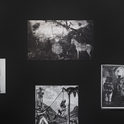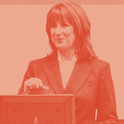Revelations about Freud are flowing fast. In a biography by Paul Ferris, to be published in September, we will learn that Freud was a cocaine fiend, who was transformed into a "big wild man" by the drug and became obsessed with it for at least 40 years. To those familiar with the subject this will come as no surprise; Freud-bashing has been gaining momentum for at least a decade. A series of books, including those by Frederick Crews, Allen Esterson, EM Thornton and Richard Webster, have questioned Freud's methodology, his ethics and his claims to scientific validity. Moreover, Freud stands accused of deliberately manufacturing patient testimonies in order to fit his theories, and of destroying patients' lives in order to further his own career.
But at the very time when Freud's credibility both as a scientist and as a man have come into question, his theories have once again become a focus of public debate. Through the "recovered memory" movement, the lives of hundreds of thousands of families have been devastated when adults, usually under the influence of therapists, recollect being sexually abused by their fathers when they were children. Many of their recollections go beyond straightforward abuse and unfold into scenes of ritual satanic abuse organised by networks of paedophiles.
While most of these claims have so far been made in the US, there is evidence of a similar phenomenon in Britain. At least three police forces are currently investigating claims of multiple abuse, and a number of high profile cases have already been investigated. In 1993, this led to the creation of the British False Memory Society, established to combat "false memory" claims. But counter-organisations, such as the Ritual Abuse Information Network and Support (Rains) have also been set up. While many therapists, social workers and certain sections of the police force genuinely believe that sexual abuse of children is an important social problem, those on the side of the accused often compare the furore to the 17th century Salem witchcraft trials.
Freud is pivotal in the debate because he is the authority upon whom the truth of recovered memory depends. He originally claimed that his female patients had systematically repressed childhood experiences of father-daughter incest. Repression, he adduced, "is the foundation stone on which the structure of psychoanalysis exists." But although he subsequently altered his "seduction theory" and insisted that his patients had merely fantasised about being abused, he always maintained that repression was the root cause of their neuroses.
Leader of the Freud-bashing movement and an outspoken opponent of recovered memory is Frederick Crews, the literary critic. When he published an essay attacking Freud and psychoanalysis in the New York Review of Books in 1993 (now republished in his book The Memory Wars), he attracted the wrath of the psychoanalytical community. The NYRB was flooded with letters of protest. He went on to publish a second essay specifically about recovered memory, in which he challenged the idea that memories of such a traumatic event as sexual abuse could be repressed.
Since then a number of other books attacking recovered memory have appeared, notably Lawrence Wright's Remembering Satan, Mark Pendergrast's Victims of Memory and Elaine Showalter's Hystories. Pendergrast makes the seemingly exaggerated claim that since 1990 more than 100,000 people in Britain have recovered memories of abuse. Yet according to a British Psychological Society survey of its therapists in 1995, 97 per cent believed in the accuracy of recovered memory. Whatever the figure, such claims are having a damaging effect not just on the families involved, but also on all professions where men are involved with children.
The debate over Crews's The Memory Wars encapsulates the knotty problem of the degree to which recovered memory can be scientifically proven. Crews has accrued an impressive body of evidence to substantiate his attack, but he seems guilty of the same extremism he tries to pin on Freud. While his argument centres on the non-scientific basis of Freud's theories, he also delivers a highly personal attack on Freud, accusing him of being a "petty generalissimo."
More seriously, while he may be right that Freud was guilty of gross egotism and callousness, he is adamant that none of Freud's ideas, even the general ones about sexuality and the unconscious, are of any intellectual or therapeutic value. Can one dismiss so breezily a man who, even by the admission of his critics, has had a profound influence on the intellectual life of the century? Harold Bloom, who trashes Freud's hermeneutic capabilities, argues that "no 20th century writer-not even Proust or Joyce or Kafka-rivals Freud as the central imagination of our age."
Crews maintains that Freud's ideas are now so entrenched that it is necessary to use robust language to dismantle them. But some of Crews's opponents claim that the fact that he was a Freudian critic in his early years has affected his judgement.
A second flaw in Crews's argument concerns his attack on the recovered memory movement. Like Elaine Showalter and Mark Pendergrast, he argues that the recovered memory thesis has been adopted by the Freudian establishment in order to recruit disillusioned psychologists and feminists. While many innocent people have undoubtedly been accused, Crews offers nothing by way of an alternative for determining whether children are being sexually abused. Although it is completely implausible that large numbers of people were flying around on broomsticks in 17th century Salem, the same cannot be said for sexual abuse. We simply do not know how many children are being abused, or how often; finding out should be more important than squabbling about Freud's legacy.
When it comes to establishing an accurate figure, Crews relies excessively on conventional western precepts of law and psychology, disciplines which failed to identify the problem in the first place. Until the turn of the century, discussion of child sex abuse was almost non-existent and as recently as 1955 a "definitive" study estimated only 1.1 cases of incest per million persons.
Crews's dismissal of repressed memory syndrome mistakes the absence of evidence of abuse for proof of its non-existence. He blandly asserts that children who have been abused must come forward and expose their parents. In saying this he casually disregards the pressures not to do so that parents place on their children. Real sexual abuse turns the victims' world upside down, forcing them to get up each morning and pretend that nothing happened the night before.
Mark Pendergrast, himself an accused parent, makes a distinction between naturally forgetting something and unconsciously repressing it. He concedes that there have been cases where people have forgotten incidents of abuse only to recall them years later. In one case a former Miss America, at the age of 53, spontaneously recalled being abused as a child. Pendergrast writes that she may have "pushed painful childhood memories to the background in order to concentrate on her busy role as college student and beauty queen." But he goes on to deny that it was repression. This implies that if the accuser's memories have been "forgotten" they are valid, but that if they have been "repressed" they are not. Pendergrast takes great pains to emphasise the seriousness of sexual abuse but, as his book demonstrates, we simply do not know enough about how memory works to make distinctions of this kind.
In fact, research on this has so far been sadly inconclusive. Researchers have demonstrated that the mind is capable of inventing or losing memories, but little is known of the circumstances in which it does so. One of the most eminent memory researchers, Elizabeth Loftus, herself a victim of sexual abuse, devised an experiment to show that memories can be implanted. A 14-year-old boy was told by an older sibling that he had been lost in a shopping mall at the age of five and that a nice man wearing a flannel shirt had taken him back to his parents. Within two days he was recalling his feelings about the event and within two weeks he had invented precise details.
Evidence of children's susceptibility to suggestion was produced recently in an experiment by Professor Stephen Ceci, an American psychologist. A small girl was given a physical examination by a paediatrician. Later she was given a doll, and asked to show on the doll what the doctor did to her. The first time she gave a more or less accurate representation of the way he examined her abdomen. But when, on successive occasions, she was asked to enact again what he had done, a greater degree of sexuality crept in each time. Finally she took a pencil and thrust it between the doll's legs.
Two years ago, the Royal College of Psychiatrists set up a working party to look into the question of recovered memory, and the report it produced is reputed to urge extreme caution about recovered memory claims. But so far the college has been sluggish about publishing this report, and the chairman of the working party, Professor Sydney Brandon, told one journalist that if it was not released soon, he would "either explode, or publish it myself." The college now says that it will be published in October.
Both critics and advocates of recovered memory have become mired in ideology. Nobody denies that sexual abuse takes place, or that it is a traumatic experience from which children need to be protected. But it seems that few are willing to discuss more effective ways of establishing whether it has occurred.
Much of the problem hinges on the fact that Freud is still being used as the yardstick by which the truth of recovered memory is measured. The first step forward ought to be to disengage Freud from the debate. (Psychoanalysis is, in any case, likely to become redundant as other, more drug-centred forms of mental treatment replace it. It is already in decline in the US, where health insurance companies are wary of paying for a treatment whose efficacy is in dispute.)
But the most powerful argument for being cautious about recovered memory is a simple one: too many false claims of abuse will devalue the experiences of those who have genuinely suffered.











